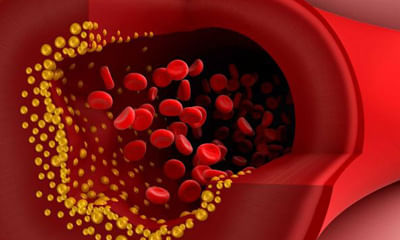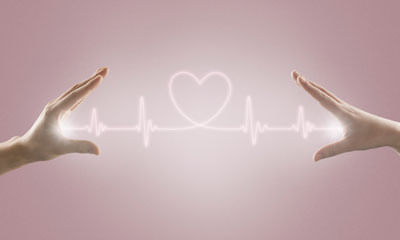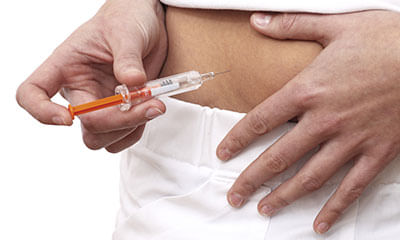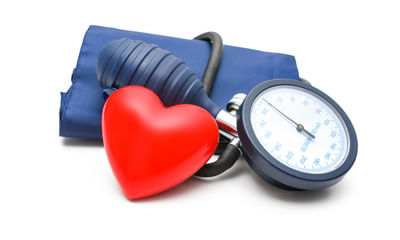Heart Stent Recovery Time
Kindly give information about uses/side effects and benefits of sreriods in bodybuilding. ...
Ask Free Question
There are two types of steroids present within the body. Corticosteroids are produced in the adrenal gland located above the kidney. These hormones include aldosterone, which helps regulate sodium concentration in the body, and cortisol, which plays many roles in the body, including serving as part of the body's stress response system to decrease inflammation. Commonly prescribed corticosteroid medications, like prednisone, prednisolone, and dexamethasone are available to be taken by mouth, intravenously, or by intramuscular injection and may be used to treat diseases like asthma, rheumatoid arthritis, inflammatory bowel disease, and systemic lupus erythematosus, as well as many others, in which inflammation is part of the disease process. The use of steroid ointments and creams on the skin, like triamcinolone and betamethasone, is common in the treatment of dermatitis (derm=skin + itis=inflammation). The second group of steroids, the androgenic/anabolic steroids, are hormones made in the body to regulate the manufacture of testosterone in the testicles and ovaries. The androgenic part of testosterone is involved in developing male sex characteristics, while the anabolic part is involved in increasing the amount of body tissue by increasing protein production. The pituitary gland, located at the base of the brain, helps regulate testosterone production and hormone secretion. Growth hormone and follicle stimulating hormone (FSH) are among the hormones that stimulate testis and ovary function and are two of the many hormones secreted by the pituitary. Anabolic and androgenic steroids are available as prescription medications to be used in cases in which the body does not make enough hormone and supplementation may be required. Some hormone supplements in this pathway include growth hormone and testosterone itself. These medications are legally prescribed by health-care providers, but this group of drugs is often used illegally and abused to help increase athletic performance and improve body appearance. When used in a well-nourished body, anabolic steroids will cause weight gain primarily due to an increase in muscle mass. While anabolic steroids may have beneficial effects when taken under medical supervision, they have many serious and sometimes irreversible side effects. These side effects are due to abnormally high levels of testosterone in the body and may include high blood pressure, elevated cholesterol levels, liver damage, heart failure, acne, baldness, as well as aggressive and violent behaviour .A few common examples of anabolic steroids include Anabol, Android, Androstenedione, Winstrol, Deca-Durabol, THG, Genabol, and HGH. Depending upon the type, anabolic steroids may either be injected into the body or taken by pill. Because of the way these medications are metabolized, the need to have recovery time, and to prevent detection, steroids are often taken in cycles in which they are used for a few days at a time, then stopped and the cycle repeated again days or weeks later. These steroids also have direct effects on numerous organs: An increased number of sebaceous glands in the skin routinely leads to acne. Liver damage may often occur, and liver cancer is a risk. The heart is at risk for damage in a various ways. In response to excess steroid in the body, the heart muscle may enlarge just like any other muscle in the body. This enlargement, or hypertrophy, can lead to decreased pumping ability (cardiomyopathy) as well as changes in the electrical conduction system in the heart causing rhythm changes (arrhythmias), palpitations, and potentially sudden cardiac death. As well, steroids may cause high blood pressure, increased cholesterol levels, and elevated blood sugars, all of which are risk factors for heart attack and stroke. Psychiatric effects of steroids include excitation and depression. Aggression is common. Manic episodes of aggressive behavior are known as "roid rage," and violence may be the outcome. Depression and suicide may also occur. In adolescents who have yet to complete growing, the use of steroids may stunt growth and stop bones, joints, and muscles from reaching full maturity. As well, premature sexual development may occur.
Age 70 he has got stent in 2014 and is taking heat medicines for blood thinning and cholesterol control. Recently he fac ...
Ask Free Question
Elderly people may have subclinical kidney damage which becomes overt with any associated disease like ulcer bleeding. Crt 1.8 is moderately high. We need supportive care for heart and blood pressure. Hope he has no active bleed. No angina. If so the levels will gradually come down on standard treatment but you need to monitor kidney parameters from time to time. Maintain heart healthy diet. Youay also have a consultation and basic workup with nephrologist.
Sir. My husband had cardiac arrest 5 months back. 2 stents had put for left arteries. He is back to normal. He is taking ...
Ask Free Question
Yes it is good for him.& it will affect the blood pressure mildly. But. In general every patient who has a significant blockage in the heart or has a history of heart attack should be on at least 4 types of medications 1) antiplatelets which increase the clotting time of blood and decrease chances of future heart attacks and Re-stenosis of the stent. Initially you are kept on two types of antiplatelets and depending upon your disease and your progress your then shifted to single antiplatelet after 6 months or 1 year. Eg: ecosprin, clopidogrel, Prasugrel, brillianta 2) Statins - are cholesterol lowering medications which are supposed to again prevent future heart attacks. Eg. Tonact / atorvas 3) ARB / ACE Inhibitors - which help decreasing pressure on the heart and prevents remodeling injuries. Eg. Cardace / telma 4) Beta Blockers - They decrease the heart rate thereby reducing the work load on the heart and decrease BP also. eg. Atenolol / Betaloc / metolar /bisoprolol usually all post angioplasty patients are kept on at least these 4 types of medications and depending upon the side effects and contraindications of medications are changed and slowly over period of time the dosage of these medications are decreased depending upon the recovery Get back to me with the reports for a detailed consultation.
I am 77 years old . I had TRA in Sept last year. Taking CLOPITAB since then. Will it help me to avoid further attack. ...
Ask Free Question
Yes it will In general every patient who has a significant blockage in the heart or has a history of heart attack should be on at least 4 types of medications 1) antiplatelets which increase the clotting time of blood and decrease chances of future heart attacks and Re-stenosis of the stent. Initially you are kept on two types of antiplatelets and depending upon your disease and your progress your then shifted to single antiplatelet after 6 months or 1 year. Eg: ecosprin, clopidogrel, Prasugrel, brillianta 2) Statins - are cholesterol lowering medications which are supposed to again prevent future heart attacks. Eg. Tonact / atorvas 3) ARB / ACE Inhibitors - which help decreasing pressure on the heart and prevents remodeling injuries. Eg. Cardace / telma 4) Beta Blockers - They decrease the heart rate thereby reducing the work load on the heart and decrease BP also. eg. Atenolol / Betaloc / metolar usually all post angioplasty patients are kept on at least these 4 types of medications and depending upon the side effects and contraindications of medications are changed and slowly over period of time the dosage of these medications are decreased depending upon the recovery Get back to me with the reports for a detailed consultation. Watch these simple explanatory videos for underlying the problem. Copy the link address to your browser 1) Chest pain 2) Heart failure 3) Three things to do in chest pain 4) Difference between heart attack and heart blocks vs heart failure Subscribe My channel on YouTube for detailed explanation about you health concerns (FREE OF COST) & do share your feedback on the below link. Your opinion is valuable.
My father is taking blood thinner ecosprin with some other medicines for heart due to the stents fixed. Now faced duoden ...
Ask Free Question
In general every patient who has a significant blockage in the heart or has a history of heart attack should be on at least 4 types of medications 1) antiplatelets which increase the clotting time of blood and decrease chances of future heart attacks and Re-stenosis of the stent. Initially you are kept on two types of antiplatelets and depending upon your disease and your progress your then shifted to single antiplatelet after 6 months or 1 year. Eg: ecosprin, clopidogrel, Prasugrel, brillianta 2) Statins - are cholesterol lowering medications which are supposed to again prevent future heart attacks. Eg. Tonact / atorvas 3) ARB / ACE Inhibitors - which help decreasing pressure on the heart and prevents remodeling injuries. Eg. Cardace / telma 4) Beta Blockers - They decrease the heart rate thereby reducing the work load on the heart and decrease BP also. eg. Atenolol / Betaloc / metolar /bisoprolol or Ivabradine usually all post angioplasty patients are kept on at least these 4 types of medications and depending upon the side effects and contraindications of medications are changed and slowly over period of time the dosage of these medications are decreased depending upon the recovery Get back to me with the reports for a detailed consultation.
I want to have my surgery for varicocele. But 3 months before I got a stent in my heart. How much time I should wait for ...
Ask Free Question
Hello dear lybrate-user, hi Warm welcome to Lybrate.com I have evaluated your query thoroughly.* After 3 months of stent in heart, you can take surgery of varicocele at anytime, provided that you are physically fit to undergo surgery as per the documentation of the cardiologist on paper. Hope this clears your query. Wishing you fine recovery. Welcome for any further assistance. Regards take care.
I had past through angioplasty before 6 months. Since last 6 months I am taking brilliant blood thinner medicine. My Dr. ...
Ask Free Question
Please continue the medication as advised by your cardiologist In general every patient who has a significant blockage in the heart or has a history of heart attack should be on at least 4 types of medications 1) antiplatelets which increase the clotting time of blood and decrease chances of future heart attacks and Re-stenosis of the stent. Initially you are kept on two types of antiplatelets and depending upon your disease and your progress your then shifted to single antiplatelet after 6 months or 1 year. Eg: ecosprin, clopidogrel, Prasugrel, brillianta 2) Statins - are cholesterol lowering medications which are supposed to again prevent future heart attacks. Eg. Tonact / atorvas 3) ARB / ACE Inhibitors - which help decreasing pressure on the heart and prevents remodeling injuries. Eg. Cardace / telma 4) Beta Blockers - They decrease the heart rate thereby reducing the work load on the heart and decrease BP also. eg. Atenolol / Betaloc / metolar usually all post angioplasty patients are kept on at least these 4 types of medications and depending upon the side effects and contraindications of medications are changed and slowly over period of time the dosage of these medications are decreased depending upon the recovery Get back to me with the reports for a detailed consultation.
My 3 arteries were noticed to be blocked and total 5stents were accordingly provided in two arteries in May 2017. I am t ...
Ask Free Question
In general every patient who has a significant blockage in the heart or has a history of heart attack should be on at least 4 types of medications 1) antiplatelets which increase the clotting time of blood and decrease chances of future heart attacks and Re-stenosis of the stent. Initially you are kept on two types of antiplatelets and depending upon your disease and your progress your then shifted to single antiplatelet after 6 months or 1 year. Eg: ecosprin, clopidogrel, Prasugrel, brillianta 2) Statins - are cholesterol lowering medications which are supposed to again prevent future heart attacks. Eg. Tonact / atorvas 3) ARB / ACE Inhibitors - which help decreasing pressure on the heart and prevents remodeling injuries. Eg. Cardace / telma 4) Beta Blockers - They decrease the heart rate thereby reducing the work load on the heart and decrease BP also. eg. Atenolol / Betaloc / metolar usually all post angioplasty patients are kept on at least these 4 types of medications and depending upon the side effects and contraindications of medications are changed and slowly over period of time the dosage of these medications are decreased depending upon the recovery Get back to me with the reports for a detailed consultation.
I am 60 years old and I have BP. I am taking metolar XR-25 and Tonact ASP-10/75 tablets daily one number in each and my ...
Ask Free Question
Please keep taking the tablets daily. These tablets are used to prevent future heart attacks and needs to be given daily. Now if we talk about In general every patient who has a significant blockage in the heart or has a history of heart attack should be porn at least 4 types of medications 1) Antiplatelets which increase the clotting time of blood and decrease chances of future heart attacks and Re-stenosis of the stent. Initially you are kept on two types of antiplatelets and depending upon your disease and your progress your then shifted to single antiplatelet after 6 months or 1 year. Eg: ecosprin, clopidogrel, Prasugrel, brillianta 2) Statins - are cholesterol lowering medications which are supposed to again prevent future heart attacks. Eg. Tonact / atorvas 3) ARB / ACE Inhibitors - which help decreasing pressure on the heart and prevents remodeling injuries. Eg. Cardace / telma 4) Beta Blockers - They decrease the heart rate thereby reducing the work load on the heart. Also decrease BP a bit. Eg. Atenolol / Betaloc/ metolar usually all post angioplasty patients are kept on at least these 4 types of medications and depending upon the side effects and contraindications of medications are changed and slowly over period of time the dosage of these medications are decreased depending upon the recovery.
Respected doc,. Age,51 yrs. Last years I had gone for angioplasty, wid 2 stents, as I had 95% blockages. Doct only broke ...
Ask Free Question
If you are facing tiredness and chest pain then you should get yourself reevaluated for your cardiac health status as soon as possible get an ECG and 2D echo cardiography done to check your heart function and development of any new changes then you can discuss the same with your cardiologist for any need for change of treatment medications Without having the complete detailed history of your case. It would be wrong for anyone to change your medications. But yes. I can educate you In general every patient who has a significant blockage in the heart or has a history of heart attack should be porn at least 4 types of medications 1) antiplatelets which increase the clotting time of blood and decrease chances of future heart attacks and Re-stenosis of the stent Both Prax and ecosprin are antiplatelets. Initially you are kept on two types of antiplatelets and depending upon your disease and your progress your then shifted to single antiplatelet after 6 months or 1 year. 2) Statins - are cholesterol lowering medications which are supposed to again prevent future heart attacks. Tonact is a statin 3) ARB / ACE Inhibitors - which help decreasing pressure on the heart and prevents remodeling injuries. Eg. Cardace / telma 4) Beta Blockers - They decrease the heart rate thereby reducing the work load on the heart. Eg. Atenolol / Betaloc. Usually all post angioplasty patients are kept on at least these 4 types of medications and depending upon the side effects and contraindications of medications are changed and slowly over period of time the dosage of these medications are decreased depending upon the recovery.








